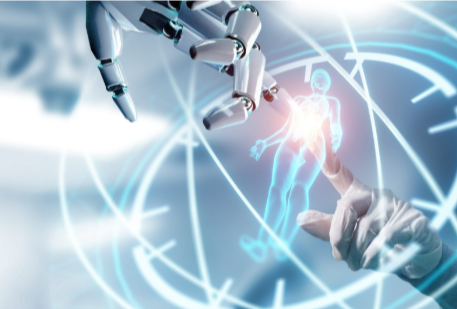How Biotechnology and AI Are Merging

The convergence of biotechnology and artificial intelligence represents a pivotal shift in healthcare and drug discovery. Advanced algorithms now analyze vast genomic datasets, revealing promising drug candidates and personalized treatment options. This synergy not only enhances predictive modeling but also optimizes clinical trial processes, signaling a new era in patient care. As these technologies evolve, one must consider the implications on ethics and accessibility in this rapidly changing landscape. What challenges lie ahead?
Transforming Drug Discovery Through Ai-Driven Insights
As the pharmaceutical landscape faces increasing pressure to accelerate drug development, the integration of artificial intelligence (AI) is proving transformative for drug discovery.
AI algorithms enhance data integration, enabling more effective predictive modeling that streamlines clinical trials.
Through advanced genomic analysis and machine learning, researchers can identify promising compounds faster, ultimately fostering innovation and expanding the potential for groundbreaking treatments in an increasingly competitive market.
Personalizing Medicine With Biotechnological Innovations
While the conventional one-size-fits-all approach to medicine has dominated healthcare for decades, the advent of biotechnological innovations is paving the way for a more personalized paradigm.
Genomic profiling allows for the identification of unique genetic markers, leading to tailored therapies that cater to individual needs.
This shift not only enhances treatment efficacy but also empowers patients to take control of their health journeys.
Read more: Cybersecurity Basics: What You Need to Know
Ethical Considerations in the Age of AI and Biotechnology
The integration of artificial intelligence within the realm of biotechnology introduces a complex landscape of ethical considerations that must be navigated thoughtfully.
Central concerns include data privacy, as personal genetic information becomes increasingly vulnerable to misuse, and genetic discrimination, which poses risks to individual freedoms.
Addressing these issues is crucial to ensuring that advancements benefit society without compromising ethical standards or personal rights.
Conclusion
In a world where algorithms might soon prescribe our morning coffee alongside genetic therapies, the merger of biotechnology and AI promises to revolutionize healthcare—if we can just ensure the robots don’t mistakenly recommend kale smoothies for every ailment. As we wade through this brave new frontier, one must wonder: will our future doctors be well-versed in both human anatomy and machine learning, or simply programmed to say, “Have you tried turning it off and on again?”




